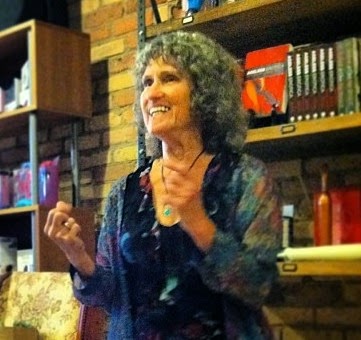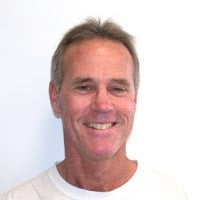Posts Tagged ‘Joan Price’s workshops’
Doctors, Talk to Us about Our Sex Lives!
 |
4/3/16: I’m bringing this 2014 post to the top because I’m giving a talk to doctors and other medical professionals tomorrow in Milwaukee. I want these comments from my readers to be easy to find if they read my blog after that — which I hope they will!
About half of all sexually active men and women aged 57-85 in the United States report at least one bothersome sexual problem; one third report at least two. Yet only 38 percent of men and 22 percent of women reported having discussed sex with a physician since the age of 50 years.
Why does this information barrier exist? And what can you, as professionals, do to overcome it with your patients and clients?
These are the questions I posed to the attendees at the beginning of “Talking about Senior Sex:
A Presentation for Medical Professionals, Therapists, and Others Working Professionally with the Older-Age Population,” which I presented at The Smitten Kitten in Minneapolis on June 19, 2014.
I was so jazzed by the responses during that workshop that I wanted to continue the discussion, so I took it to my Naked at Our Age Facebook page (which I invite you to read and “like”).
Our community jumped in eagerly with their comments and experiences. Here are some of those:
- It would suffice if they just asked. I think they are 1) embarrassed, and 2) afraid that a nestful of psychological tangles would emerge, which would take a lot of their time. As a doctor, you would have to believe that relationships, beliefs, and habits contributed to illness, and I think most of them are just looking for a set of symptoms. The mind-body connection is far from their thoughts.
- It may be difficult for physicians to broach topics on sex because of their lack of education on sexual matters – not just with senior sexuality. Often such topics are delegated to nurse specialists or physician assistants. There are also shades of sexuality beyond the range of physiology, endocrinology, anatomy, and other hard sciences that are beyond the scope of topics covered in med school and continuing medical education. We need to take charge and help drag medical providers along with us on this topic.
- Sex over 55 is often challenging if your parts are in perfect working order, but if they are not, then it’s an entirely different ball game. As someone who has lived with a sexual challenge for 20 years (and who is now 67), I found, in the beginning that it was helpful to write a letter to the doctor prior to the appointment – an ice-breaker. Now, however, after such a long-term medical problem, I am really very open with all the doctors I see and they either handle it or they don’t – they can choose!
- We live in a culture that allows only a few sexual subjects to be discussed and those in limited ways. Having lived a lifetime hiding or being ashamed of our sexual natures, it can be a huge challenge to just start talking about “it” when we reach those years. The mechanics of sex may be easier to discuss than unmet needs and innate desires. It is a gift to be sexually sovereign in our culture.
- In my case, no doctor ever broached the subject. I was always the initiator. After 12 years of fertility work, four ectopic pregnancies, numerous spontaneous abortions and nerve damage resulting from a rape, surgeries and malpractice (they refused to remove the infamous Dalkon Shield IUD after the rape and subsequent STD infection), it’s not a stretch to understand why I had a damaged libido. Only with recent help from two amazing physicians, with whom I can discuss anything, have I begun to find help! Finding this and other groups online has also been salvation of yet another kind. Thanks for opening so many doors to those of us who have foundered for so long!
- Actually, it was through conversations with my nurse practitioner that my road to sexual freedom opened up. Also through my wonderful husband’s patience, and Joan’s book, Naked at Our Age. There is a taboo about sex at a certain age, but for us it has just been renewed!
- Particularly as sex and disability is also a taboo subject and many people will have genital dermatoses and that will make it even harder for them to open up to anyone. I am 67 and despite lichen sclerosis, I remain sexually active.
- The doctor needs to be calm, confident and comfortable with the subject. If the doctor is squirmy and clearly uncomfortable, it won’t help the patient to open up. Speaking for myself, if I’m a little squirmy and hesitant, I’d appreciate it if the doctor would give me the time and space to squirm a little and build up my courage. I had that experience with a doctor; he asked what was clearly a scripted question, I hemmed and hawed a little struggling to express an answer. Since the answer wasn’t immediately forthcoming he just jumped right to the next question. I got the distinct feeling he really didn’t want to hear it, so the subject was dropped. On the other hand, a doctor might ask a question and get a very forthright answer they weren’t expecting. They better be ready for that too; no eyes bugging out, no jaw dropping, no flinching. They might need to develop the ‘warm positive regard’ thing that therapists are taught.
- I’m 73, have an older woman doctor trained in Europe who brought the subject up in the course of an annual physical, and was quite matter of fact about it, made me quite comfortable discussing the subject, and referred me to an endo.
- I’m not your target age group but my nurse practitioner at Kaiser simply asked if I was happy with my sex life and, after I affirmed that I was, proceeded to tell me that orgasm was good for my vaginal health (not to mention my psyche) and encouraged me to take charge of my pleasure because it would help make perimenopause easier to take, keep my bladder where it belongs and generally support my wellbeing. Hell yeah -this I knew – but what was even better was that she made it clear that she was there to help. My sexual health was not some secondary aspect. It was a full-fledged piece of my gynecological workup. To which I say – well done!
- I’d like to see it simply become a matter of routine during all regular check ups, or anytime the visit is for more than a sniffle really, as well as anytime mental health/ relationships are discussed. We need to be in the habit of treating the whole person, not just fixing bits and pieces and mending boo-boos.
I hope you’ll continue this important conversation by commenting here. (And if you’d like me to bring this presentation to your organization, please contact me.)
A Man’s View: Women not on HRT don’t want sex
I just received a thoughtful and provocative email from a Peter, a handsome, fit, intelligent man of 59 who recently attended my Ask Me, I’ll Tell You workshop at Good Vibrations in Berkeley. He raises a stimulating issue – are women past menopause disinterested in sex if they’re not on hormone replacement therapy? Here’s what he told me:
…I think you should have this input from a man who is a sincere feminist, appreciates your work, and is an incurable romantic and irrespressible horndog to boot.
I look young for my age, keep myself in great shape, have youthful ideas and spirit, but am a month shy of sixty. In our sexist and ageist culture, most women with whom I should have something in common seek a younger man. I’m open to a relationship with any woman who is fit, youthful, and hasn’t lost her sex drive.
It’s the latter that always poses the problem. My experience is that post-menopausal women fall into two categories regarding sex: those who take hormone replacement drugs (few, as the statistical association with breast cancer becomes known) and those who don’t. The former have sex; the latter don’t. I have been with close to a hundred women who are post menopausal in sexual situations and the results have never varied.
I fully understand the issues you discussed about changing arousal patterns, lubrication, patience, etc. I’ve explained – in a general and restrained manner – my understanding of this, but have only made it to bed a few times with those who don’t take hormone supplements, only to find a freeze up once I get there.
I notice many laments from women over forty who characterize themselves as “old,” laments from women over fifty who claim to be “sexually active” while no man their age is (defying biological reality), and laments from both that all men want is sex.
But when I date them, write them, talk to them, embrace them, always respectfully, the response is always the same if they are past menopause. This even holds true after lengthy dating and what seems to be an emotional connection.
I want what you preach, but my experience is that it’s women who block it. Most men my age I know who would be a good catch have given up because they think no one wants them any more. It sounds like the women say the same. They need to accept that men want to communicate and connect with them, and if refusing to do so governs their actions, that is the problem – one that they must face and overcome.
I think your workshop was well prepared and taught, and you have an important issue. I’ve taken several classes at GV and thought yours was outstanding. Please stick with your message. You’re doing it right and you’re appreciated. Thank you.
I would love to read your reactions to Peter’s comments. In my experience, both personally and through interviewing women for my book and afterwards, I have not found this kind of clear division between women who choose to have hormone replacement therapy (HRT) and those who do not.
Certainly the lack of estrogen does affect sexual comfort and pleasure, and some of us who say no to full HRT still use estrogen vaginally, which is thought to be safe and effective. (Disclaimer: I’m not giving medical advice. Please consult your medical professional to make your health decisions.)
But is Peter right that women post-menopause who don’t go on HRT just aren’t interested in sex? Here’s a good guy, attractive, sensitive to women, and romantic – the kind of man so many of you have said you’re looking for. What’s your experience?
Men & Women Talk about Sex and Aging
 Good Vibrations in Berkeley was alive last night with the voices of women and men sharing their sexual feelings and experiences at my “Ask Me, I’ll Tell You: Women and Men Talk about Sex and Aging” workshop.Thank you, participants, for your candor and respectful acceptance of what everyone else had to say. I hope you left the workshop as I did — flying high on the excitement of the evening and filled with the ideas you shared with me and each other.
Good Vibrations in Berkeley was alive last night with the voices of women and men sharing their sexual feelings and experiences at my “Ask Me, I’ll Tell You: Women and Men Talk about Sex and Aging” workshop.Thank you, participants, for your candor and respectful acceptance of what everyone else had to say. I hope you left the workshop as I did — flying high on the excitement of the evening and filled with the ideas you shared with me and each other.
Two hours flew by much too quickly, and the #1 complaint was “not enough time!” So let’s keep talking! Here are a few of the questions we discussed, including those that you asked, but we ran out of time before discussing. Go ahead and post a comment with your thoughts, and we’ll keep the discussion going.
Questions for the men:
– What do you fantasize about, and how do you like to incorporate fantasy into your sex life?
– Why don’t many men find women sexy as they get older, and how can older women become more desirable?
– How do you experience your sexuality and sexual response as you get older?
– What are your fears about aging and sex?
Questions for the women:
– How can men establish sexual communication (e.g. talking about foreplay, oral sex, anal sex)?
– What can men do to help women keep lubrication?
– What should men know about women in order to turn them on sexually and maintain sexual arousal?
– What are your fears about aging and sex?
We’ll be repeating this workshop in Sebastopol this fall and at Good Vibrations this winter. (If you would like me to bring this workshop to your location, please email me and let’s talk.)
Some comments about Joan’s workshop from participants:
“Thank you for your candor and expertise” (Lisa, 55)
“A great candid comparison of people of similar interests and concerns” (David, 66)
“Love to hear the open discussion” (Judy, 62)
“The group exercises were excellent” (Steve, 45)
“I found this group to be especially open and intellectual and positive. You have a great deal to share that will improve many lives.” (Fay, 66)
“You should be on Oprah!” (Anne, 50)
[Photo by Constance Cavallas, published with permission]

